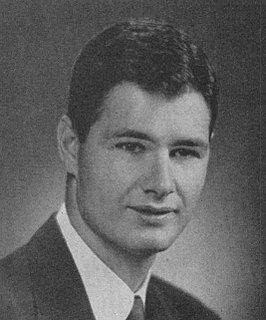A Quote by Sebastian Kurz
We are neither a regional power nor are the Balkans our sphere of influence. These are self-confident countries. We should be particularly thankful to Macedonia, a country that has taken on a very difficult task without profiting from it. Quite to the contrary: Instead of praise, there was criticism from the international media. The reason for our decision was that we were being massively overstretched - we had to stop the influx. Whether that also had a positive impact in Germany, that judgment must be made there.
Quote Topics
Also
Balkans
Being
Confident
Contrary
Countries
Country
Criticism
Decision
Difficult
Difficult Task
Germany
Had
Impact
Influence
Instead
International
Judgment
Macedonia
Made
Massively
Media
Must
Neither
Nor
Our
Particularly
Positive
Positive Impact
Power
Praise
Quite
Reason
Regional
Self
Should
Sphere
Sphere Of Influence
Stop
Taken
Task
Thankful
Very
Were
Whether
Without
Related Quotes
I think that all of the cyber attacks that are taking place, but particularly this - the Russian one, had a profound impact on the American system, on our political process, on our - it invaded the space of our election. The releasing on a regular basis of one party's stolen emails had an impact, and I think that other things also had an impact.
The Gross National Product measures neither our wit nor our courage, neither our wisdom nor our learning, neither our compassion nor our devotion to our country. It measures everything, in short, except that which makes life worthwhile, and it can tell us everything about America - except whether we are proud to be Americans.
Countries that work with Europe should feel safer than they would if they worked with non-democratic regimes. Why isn't Europe building infrastructure in Africa instead of leaving it to the Chinese? Why haven't we succeeded in promoting the economic development of our neighbors in the Balkans, instead conceding these countries to growing Russian influence? In an uncomfortable world, we Europeans can no longer sit back and wait for the U.S.A.
That historians should give their own country a break, I grant you; but not so as to state things contrary to fact. For there are plenty of mistakes made by writers out of ignorance, and which any man finds it difficult to avoid. But if we knowingly write what is false, whether for the sake of our country or our friends or just to be pleasant, what difference is there between us and hack writers? Readers should be very attentive to and critical of historians, and they in turn should be constantly on their guard.
...the gross national product does not allow for the health of our children, the quality of their education or the joy of their play. It does not include the beauty of our poetry or the strength of our marriages, the intelligence of our public debate or the integrity of our public officials. It measures neither our wit nor our courage, neither our wisdom nor our learning, neither our compassion nor our devotion to our country, it measures everything in short, except that which makes life worthwhile.
The US no longer does decisions. It can neither stop the drug traffic nor legalize it. It can neither win wars nor abandon them, neither make money nor stop spending it, neither stop immigration nor assimilate the immigrants. Washington can beat its thumb with a hammer, yes, and notice that it hurts, but it can't stop beating its thumb. That would take a decision, and Washington doesn't do decisions.
You can't just stop technological progress. Even if one country stops researching artificial intelligence, some other countries will continue to do it. The real question is what to do with the technology. You can use exactly the same technology for very different social and political purposes. So I think people shouldn't be focused on the question of how to stop technological progress because this is impossible. Instead the question should be what kind of usage to make of the new technology. And here we still have quite a lot of power to influence the direction it's taking.
Reason, in a strict sense, as meaning the judgment of truth and falsehood, can never, of itself, be any motive to the will, and can have no influence but so far as it touches some passion or affection. Abstract relations of ideas are the object of curiosity, not of volition. And matters of fact, where they are neither good nor evil, where they neither excite desire nor aversion, are totally indifferent, and whether known or unknown, whether mistaken or rightly apprehended, cannot be regarded as any motive to action.
The Tories must stop focusing on their ideological obsession with a hard Brexit and their internal party divisions and start focusing on what is best for our country and our economy. Their absurd proposal that the U.K. should become the E.U.'s tariff collector is neither practical nor palatable across the Channel.
Let this point therefore stand: that those whom the Holy Spirit has inwardly taught truly rest upon Scripture, and that Scripture itself is self-authenticated. . . . Therefore, illumined by his power, we believe neither by our own nor by any one else's judgment that Scripture is from God; but above human judgment we affirm with utter certainty (just as if we were gazing upon the majesty of God himself) that it has flowed to us from the very mouth of God by the ministry of men.
Barack Obama winning the election had an instant impact on everything - race relations, national self-esteem, tolerance. It also had an instant affect on 'Frost/Nixon.' At a stroke, instead of being a piece that reminded people of the agony they were in, it became an uplifting message about the agony they had escaped.
In America, we then made a commitment, particularly after World War II with the GI Bill, to massively expand our commitment to college education, and that meant we had more engineers and we had more scientists and that meant we had better technology, which meant that we were more productive and we could succeed in the global marketplace.
































